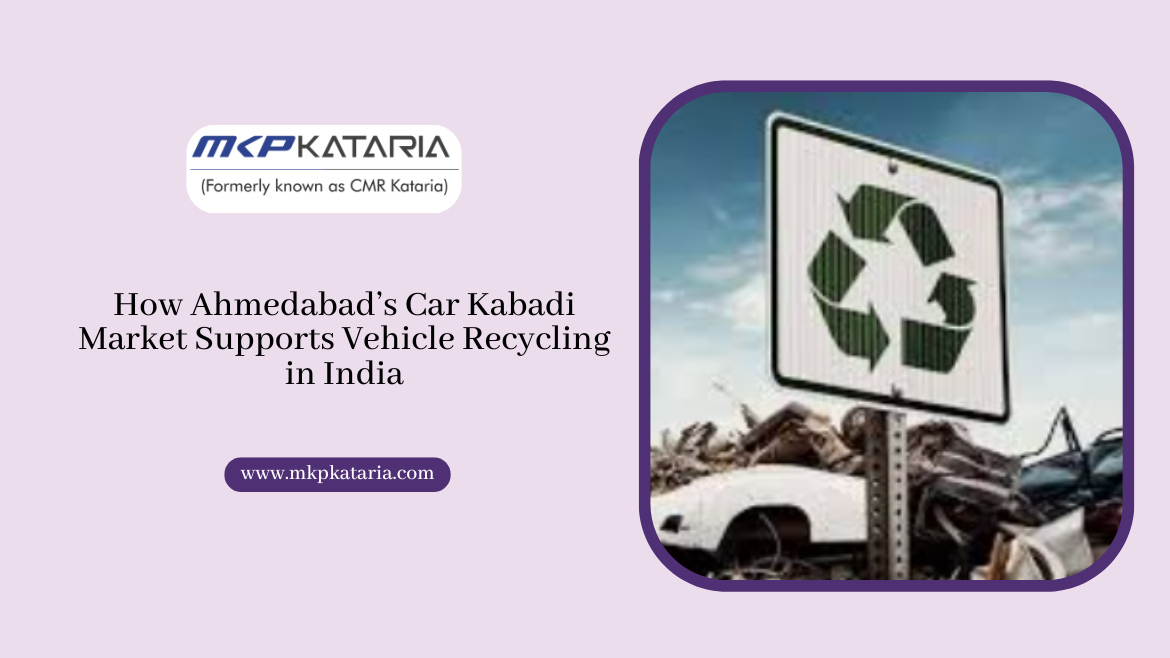In recent years, the concept of vehicle recycling has gained steady attention in India, and one city that stands out in this effort is Ahmedabad. Known for its industrious culture and progressive outlook, Ahmedabad has developed a thriving car scrap market in Ahmedabad that plays a vital role in promoting sustainable recycling practices. This growing market is not only helping the environment but also creating economic opportunities and reducing waste on a large scale.
In this article, we will discuss the role of Ahmedabad’s car kabadi market in supporting vehicle recycling in India.
A Growing Awareness About Vehicle Recycling
Vehicle recycling was not at all familiar in old days and vehicles which were not in use were left to rust in garages. However, with rising awareness about environmental sustainability and government initiatives promoting vehicle scrappage, people have started to understand the importance of proper car disposal. Instead of letting unused vehicles pollute the environment, many car owners now sell them to car kabadi or scrap dealers.
This shift is helping build a more responsible system where vehicles are recycled efficiently, valuable parts are recovered, and harmful materials are disposed of safely. The kabadi market, which was once hardly known to people has now evolved into an organized network that supports green practices across the automobile industry.
Environmental Benefits of Car Recycling
One of the major reasons why recycling is promoted and adopted is the environmental benefits. By reusing metals and other materials, the demand for mining and manufacturing new raw materials is reduced. This saves energy, lowers greenhouse gas emissions, and prevents soil and water pollution.
In addition, responsible vehicle scrapping ensures that harmful fluids like engine oil, coolant, and brake fluid are properly drained and treated before disposal. This prevents contamination of nearby soil and water sources thus preventing soil and water pollution.
Economic Impact and Job Creation
The kabadi market in Ahmedabad helps in boosting the economy of the sector overall. The recycling and scrap trade supports hundreds of small and medium businesses, providing livelihoods to mechanics, technicians, transporters, and scrap collectors.
Each old vehicle that enters the market supports multiple layers of employment as a lot of people are involved in every process, from dismantling and sorting to recycling and resale. This helps in creation of a lot of jobs in the market which helps in boosting the economy as well as supporting the livelihood of many people.
Government Policies and Support
The Indian government has taken several steps to promote organized vehicle scrapping. The Vehicle Scrappage Policy, introduced to phase out old and polluting vehicles, provides financial incentives to vehicle owners who scrap their outdated cars. Ahmedabad, being a forward-looking city, has embraced this policy with enthusiasm.
Registered scrap dealers are working closely with government authorities to ensure vehicles are dismantled in an eco-friendly manner. This collaboration ensures transparency, safety, and compliance with environmental standards. Such measures not only protect the environment but also encourage citizens to participate in responsible recycling.
Building a Culture of Sustainability
One of the most remarkable things about Ahmedabad’s car kabadi market is how it has helped build a culture of sustainability among residents. People now see scrapping as a smart, responsible, and rewarding choice rather than a burden.
When vehicle owners sell their old cars to authorized scrap dealers, they not only free up space but also contribute to a larger cause, reducing waste, saving resources, and promoting cleaner air. This cultural shift reflects a growing sense of environmental responsibility that other cities can learn from.
Future of Vehicle Recycling in India
The success of Ahmedabad’s kabadi market is setting an example for other cities across India. With better technology, more organized facilities, and stricter environmental rules, the future of vehicle recycling looks bright. As electric vehicles become more common, the recycling industry will also evolve to handle components like lithium batteries and electronic parts. Ahmedabad’s experience in managing vehicle scrap efficiently provides a strong foundation for future advancements in this field.
Moreover, awareness campaigns and digital platforms are making it easier for car owners to find authorized scrap dealers and understand the benefits of proper vehicle recycling.
Conclusion
Ahmedabad’s car kabadi market sets an example for traditional industries on how they can adapt to modern sustainability goals. Vehicle recycling started from nothing and has grown into a well-organized system that benefits the environment, economy, and community at large. Through systematic dismantling, recycling, and responsible disposal, the city is helping India move closer to a circular economy, one where nothing goes to waste. By supporting vehicle recycling, Ahmedabad is not only keeping its streets cleaner but also driving the country toward a greener and more sustainable future.






